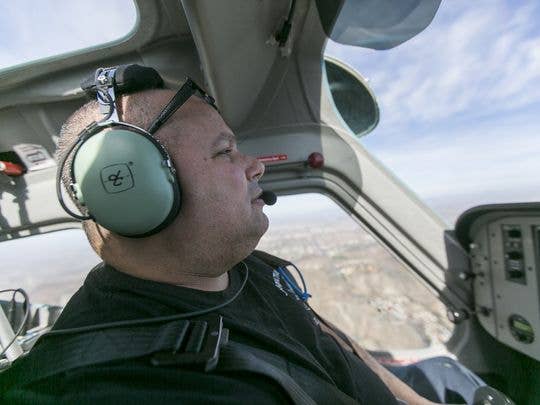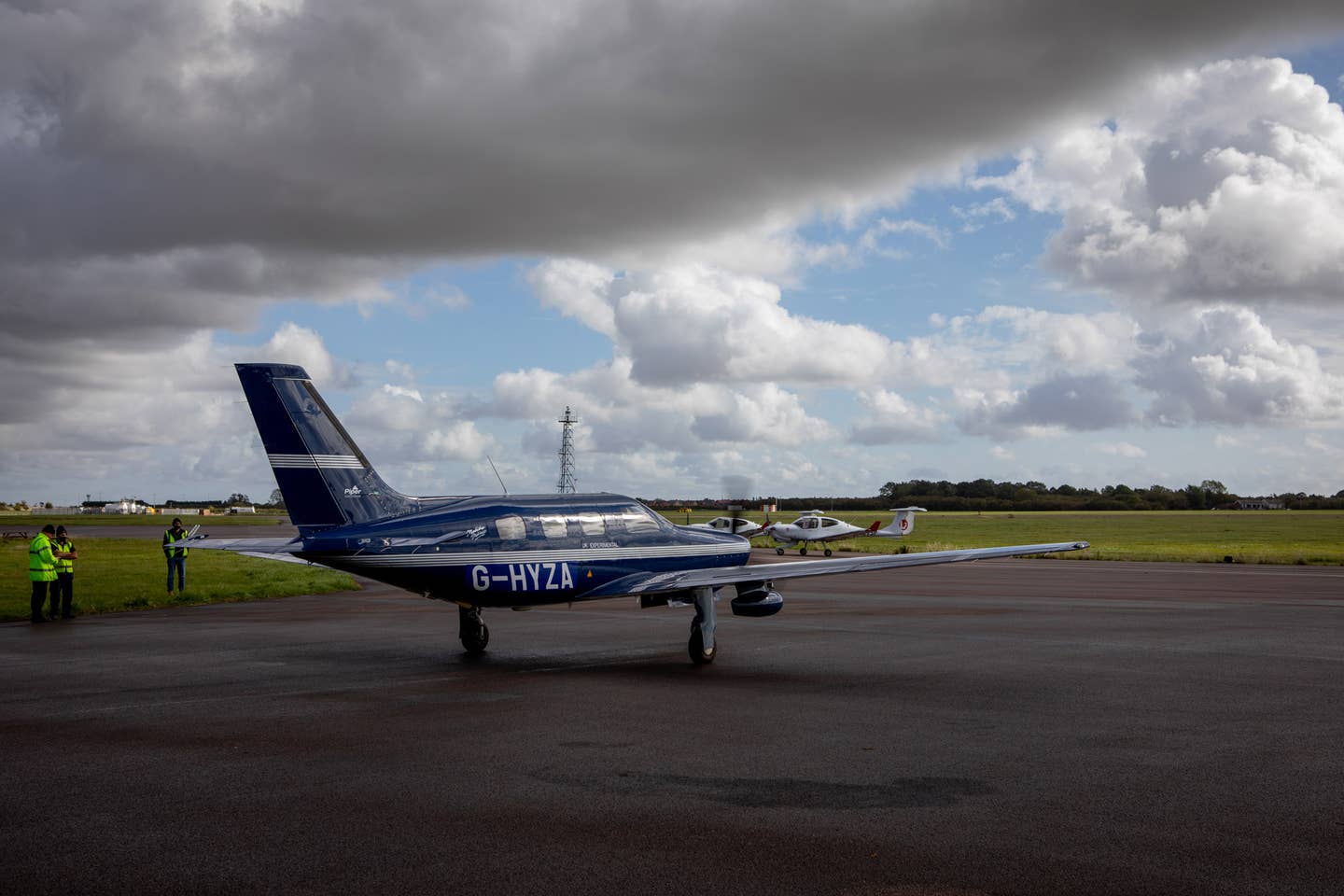
Jonathan Smith was told he could never be a pilot because of his severe stuttering issue, but he overcame it and is now helping other people with disabilities. Jonathan Smith
Jonathan Smith always dreamed of being a pilot, but with a severe stuttering disorder, he was told it was impossible for him to earn a pilot’s license. In 2010, he reached out to multiple flight schools in New Jersey, but was turned down by each one.
“I became interested in flying as a kid, but was told time and time again that, due to my stuttering, I could never be a pilot,” Smith says. “The stuttering made it very hard for me to find a CFI that would give me a shot at learning to fly.”
Smith’s speech impediment causes him to struggle from syllable to syllable, especially around people he’s not yet comfortable with. He was told that because of his stutter he’d never pass a check ride — which requires fluency in English — much less obtain the medical certificate required to become a private pilot.
So he found a new hobby: building and racing drones. A naturally tech-savvy person with a job in the IT field, Smith combined his love of flying with his knack for tinkering. After moving to Surprise, Arizona, two years ago, he even participated in drone-racing events.
But everything changed in December 2015, when Smith took a trip to Las Vegas with his girlfriend, Reagan. The two took a helicopter tour, and after seeing how much she loved it, Smith was once again determined to learn how to fly.
Calling around to flight schools in Arizona, Smith learned about light-sport aircraft. Earning a Sport Pilot license would allow him to fly LSAs without an FAA-mandated medical exam. The very next month, Smith was up in the air with CFIs from Arizona Flight Training Center (AFTC) at Glendale Municipal Airport working on his Sport license.
Around this time, Smith made a startling discovery: His stutter totally disappeared when he was flying.
“I didn’t realize it at first because I was too busy flying and learning,” Smith said, but after he landed, it occurred to him that he’d been speaking clearly. “The feedback from the headset makes the stuttering disappear,” he surmises.
Just three months later, CFI Daniel Lamb signed off on Smith’s check ride. Although Smith had been turned away by other flight instructors prior to finding AFTC, Lamb says the stutter never interfered with Smith’s ability to fly safely. “The examiner commented on that as well. His stutter is not a problem,” Lamb says. “I think a lot of people didn’t give him the benefit of the doubt. They might think somehow his speech impediment reflects his intelligence, but that’s not the case.”
Once Smith had earned his Sport Pilot license, he decided to keep going, just to prove he could do it. By September 2016 he was an advanced ground instructor, and in January he became a CFI-S. Now he’s instructing several students at AFTC.
“[Smith] has the natural ability to teach,” said student Bobby Steidel. “That’s his greatest asset.” The two met when Steidel visited AFTC seven months ago for a discovery flight and hit it off right away. “It’s amazing because when I first met [Smith], he was stuttering, but when he gets to know a person, he doesn’t really stutter,” Steidel says, “And when we’re flying and we’re speaking into the headsets, there’s no stuttering.”
“I did not plan on teaching,” Smith says. “I did this just due to everyone telling me it couldn’t be done.” But Smith says that earning his CFI-S has allowed him to open the door to light sport aviation for others who’ve been told they were unfit to be pilots.
“I am giving anyone with disabilities or disorders free flights out of my pocket,” Smith says, “to encourage them to try it.”
Under the nickname LightSport Man, Smith is sharing his story online and promoting his offer to help more people with disabilities discover the joy of flying. So far, Smith has given 10 free flights.
“I love to see someone's face the first time they take control of the plane,” Smith says. “It really makes everything I went through worth it.”

Sign-up for newsletters & special offers!
Get the latest FLYING stories & special offers delivered directly to your inbox






